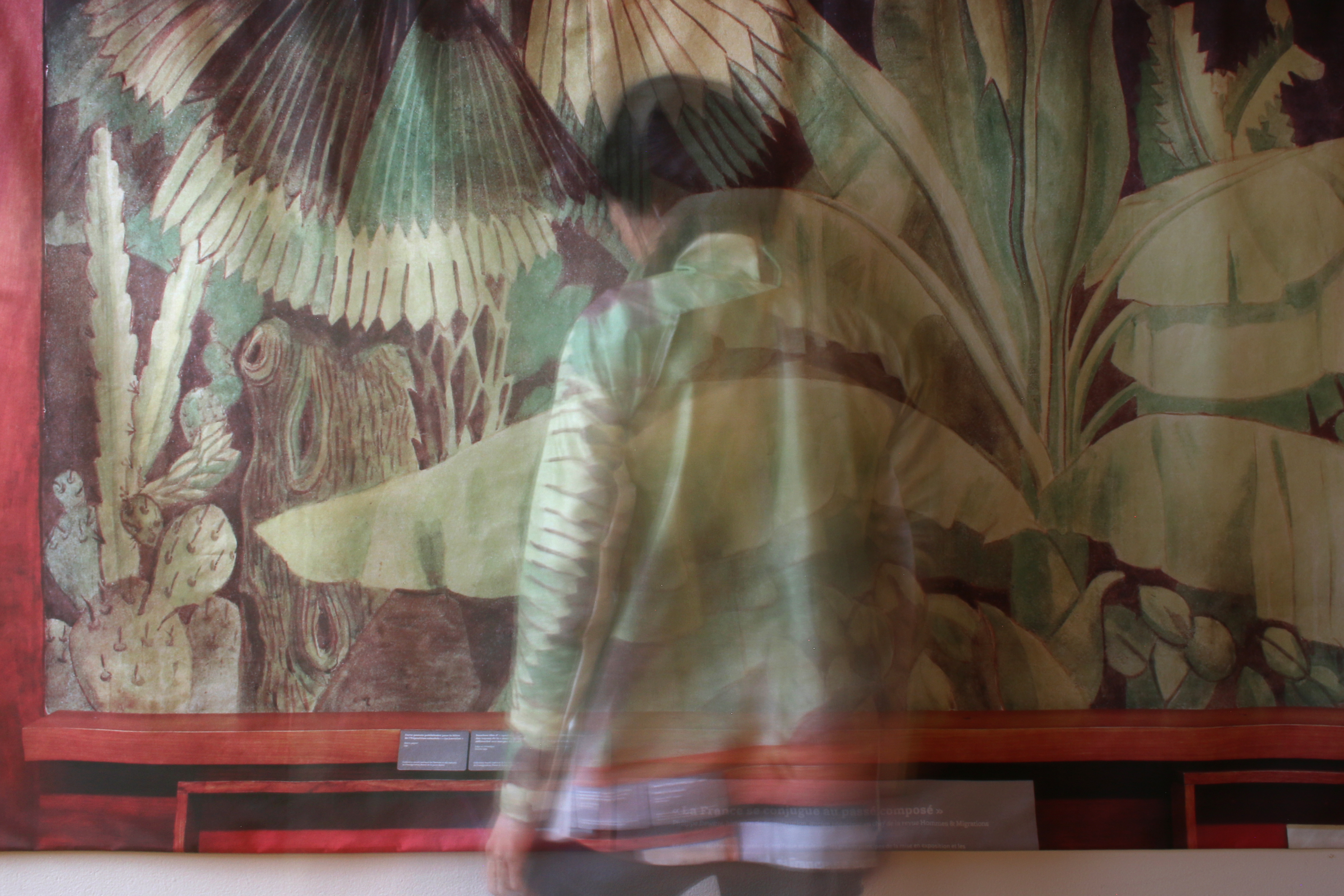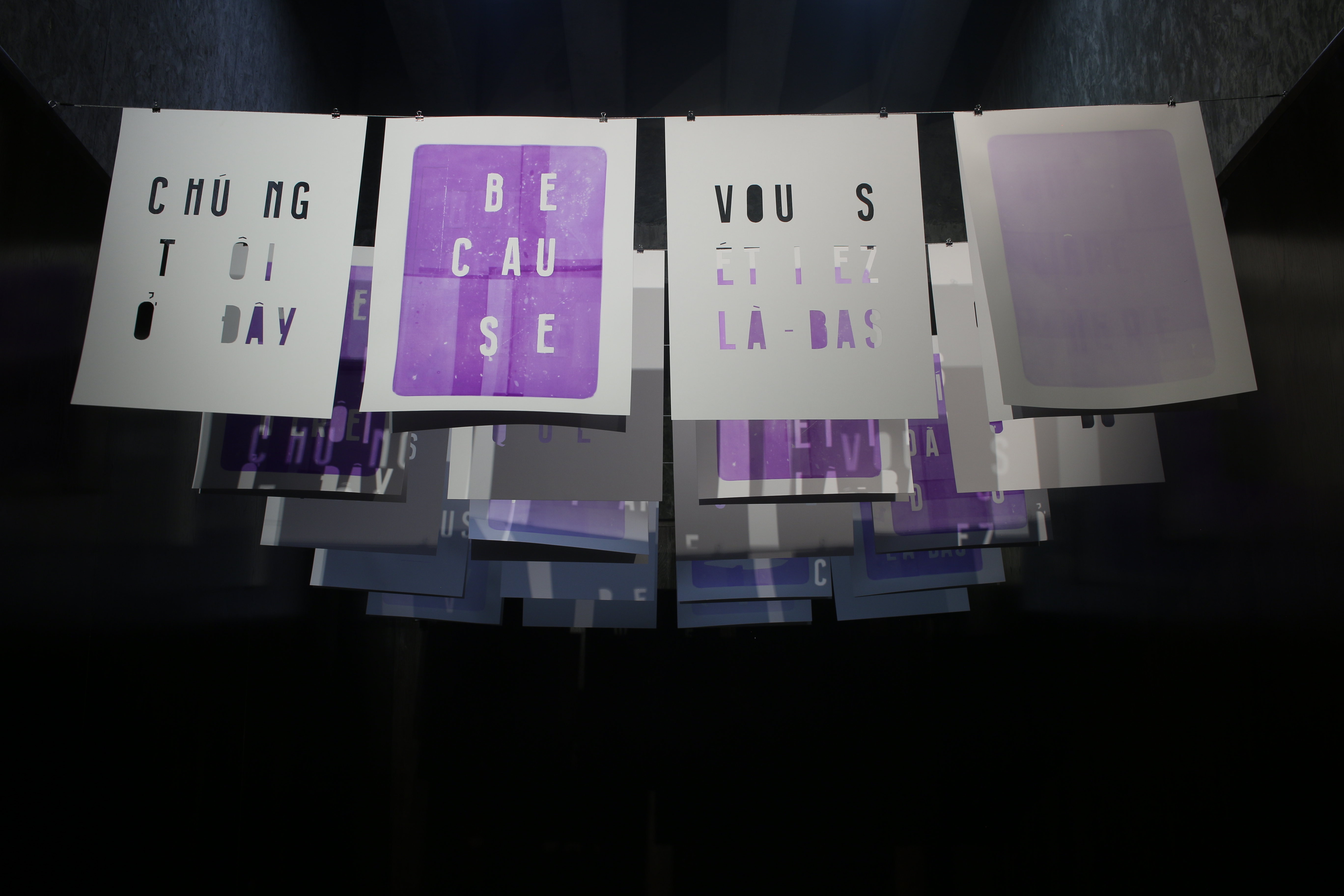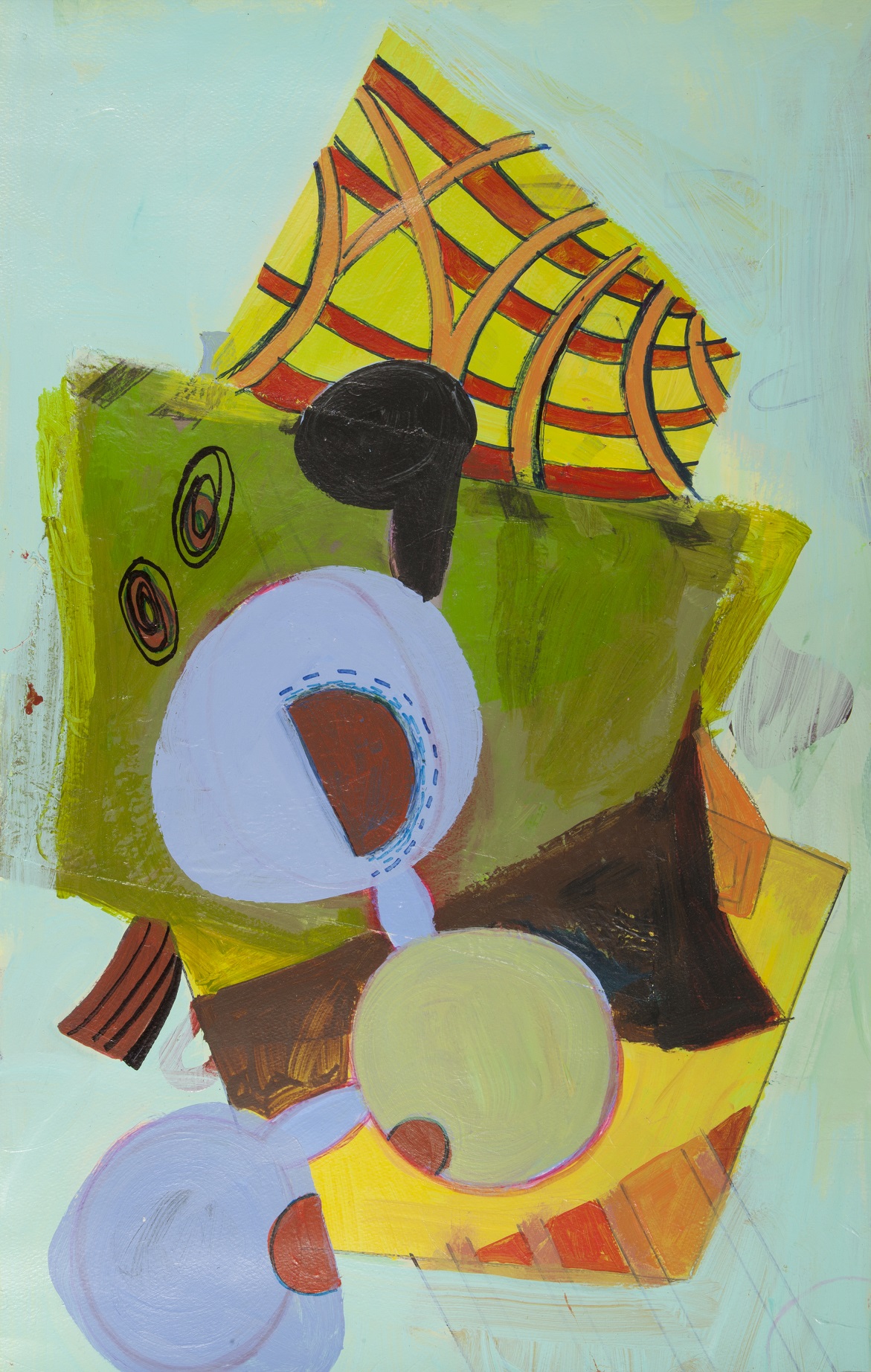Báez’s
exhibition, “Vessels of Genealogies,” tells stories of identity, history and
politics through bright colors, patterns, hairstyles and textiles depicted in
her large-scale paintings and tapestries, said Julie Rodrigues Widholm, the
museum’s director and chief curator. “Vessels of Genealogies” will be the main
exhibition on the first floor of the museum.
The second exhibition will feature Ngô’s new
work on Vietnamese anti-colonial organizer Nguyễn Thị Minh Khai. The works were
inspired by Ngô’s trips to Vietnam and France, according to Widholm. “To Name
It Is To See It” will touch on topics including colonialism, political
activism, women’s rights, surveillance, class, language and Vietnamese history.
‘Vessels of
Genealogies’
Organized
by the Tarble Arts Center at Eastern Illinois University, “Vessels of
Genealogies” is curated by Maria Elena Ortiz, the associate curator at the
Pérez Art Museum in Miami.
“Visitors
will be able to connect to Firelei Báez’s experience as an individual who
migrated to the U.S. to improve her life conditions and become an American,”
said Ortiz. “But at the same time they will be exposed to new strategies for
identity formation experienced by people from Latin, Caribbean and African
descent. I think that this is particularly important because Báez’s work
challenges the basic idea of how race is experienced in the U.S. — a condition
defined as binary and black or white. In her work, one can appreciate that she
is many cultures. She expresses the consciousness of a new generation eager to
embrace their cultural prowess in terms of hybridity.”
The exhibition title “Vessels of Genealogies” comes from an acrylic,
graphite and ink-based painting, "Vessel of Genealogies," that features a completely tattooed female with
flowing hair and is part of the exhibition coming to DePaul.
Báez
was inspired to make this piece after researching West African body masks
featuring Vejigantes, a folkloric Caribbean character that wears highly ornate
colors in carnival celebrations, according to Ortiz. The figure is covered in
patterns related to these two motifs, as her body becomes masks that connect
her to her ancestors. “Here, there is certainly an impetus to express the human
capacity to merge different cultures to create something new,” said Ortiz.
Another
important piece in the exhibit is the painting “Can I Pass? Introducing the
Paper Bag to the Fan Test for the Month of July, 2011.” Made of gouache, ink
and graphite on panel, the painting features 30 different outlines of Báez and
her different hairstyles for the month.
“I
think that Báez is trying to portray the absurdities of racial categorization,
how race has been “determined” by ridiculous assertions of phenotype in the U.S.
and the Dominican Republic,” said Ortiz. “What I find most interesting, is how
this work brings forth the complexities of the U.S.-Latin identity in relation
to the African-American experience. In the U.S., Latin communities experience
significant discrimination, and even within their own communities there are
racial hierarchies in which Afro-Latinos and indigenous cultures are often
disregarded as less than their European counterparts. In this sense, Báez
brings the U.S.-Latin and African-American experiences to an even field,
especially when considering racism and discrimination.”
The
exhibition also features some of Báez’s earliest work, including “Daughters of
the Revolution” and “Ode to La Siréne
(and to muses beyond Jean Luc Nancy’s Canon).” The work “CPT Symmetry (echoing
Marie Laveau’s manipulations of the elusive mirror image of matter)”
established Báez’s career and focuses on her investigations of the
tignon, a headdress that free women of color were obligated to wear in
antebellum New Orleans, according to Ortiz. “These three works have rarely been
exhibited in public and established Báez’s role as a leading voice in her
generation,” she added.
‘To Name It Is To See
It’
From the beginning of the project Ngô
wanted a title that drew connections between language and seeing, the artist
said. “’To Name It Is To See It’ evokes the
promise of a discursive practice, identifying an injustice by name is the first
step to understanding it and working towards change. At the same time, there is
deception to the title because identification was a preoccupation of the
colonial authorities, who, while able to identify Nguyễn Thị
Minh Khai and her cohort, were continually
stymied by their aliases and disguises. In their case, naming guaranteed nothing,”
explained Ngô.
 Study for video "Hidden from Plain Sight," 2017. (Courtesy of the artist)
Study for video "Hidden from Plain Sight," 2017. (Courtesy of the artist)A
leader of the Indochinese Communist Party in the 1930s, Nguyễn Thị Minh Khai
was killed by a French firing squad in 1941 after more than a decade of work as
an anti-colonial figure and a master of disguise that featured both
international espionage and national sabotage, said Ngô.
“In today’s political
climate in the U.S., Nguyễn Thị Minh Khai’s story is incredibly
important to tell.” “Nguyễn Thị Minh Khai was a Vietnamese woman, organizing
against the colonial French government when not only her activities were
criminalized, but also when her actions and judgement were questioned within
the patriarchal community of revolutionaries,” said Ngô.
“Her story upends representations of
Asian women as being apolitical and even passive. It also highlights the
connection between the criminalization of people of color and
the legitimization of oppressive surveillance policies, which, once in place,
are then used on a general population. Finally, the project touches on what
motivates an oppressed people to organize, raise consciousness and actively
resist unjust authoritarian regimes,” Ngô noted.
The exhibition features more than 25
individual pieces of art ranging from photos to video and fabrics.
“This
project is not biographical or meant to construct a narrative of Nguyễn Thị
Minh Khai, but rather to reveal the difficulties and even the impossibilities
of her many roles,” said Ngô. “There
is as much in the exhibit that engages in the institutional frameworks that
shape such historical narratives (such as national archives and museums) and determines
what is revealed as well as what is lost as there as there is that addresses
her story. Having said that, the aspects of the archives that I have
highlighted reveal the difficulties of doing this kind of political work as a
Vietnamese woman at this time.”
 "We are here because you were there." Chúng tôi ở đây vì quí vị đã ở đó. Nous sommes ici parce que vous étiez là-bas, 2016. Installation with series of hectograph prints, hand-cut paper, theater lights. Installation at VISUAL Carlow, Ireland. (Courtesy of the artist)
"We are here because you were there." Chúng tôi ở đây vì quí vị đã ở đó. Nous sommes ici parce que vous étiez là-bas, 2016. Installation with series of hectograph prints, hand-cut paper, theater lights. Installation at VISUAL Carlow, Ireland. (Courtesy of the artist)The
exhibition includes a letter from Nguyễn Thị Minh Khai to the other men in the
movement at a time when she is both the most powerful liaison and the least
powerful among their milieu, said Ngô.
“She
was the highest ranking, but because she was a woman she wasn’t allowed to vote,”
said Ngô. “The note reveals her frustration
that the group does not trust her leadership and prefer their own disorganized
ineffectiveness. One could easily draw parallels to the struggle that many
women still feel today in achieving equality.”
“At
the DePaul Art Museum, we are committed to providing a platform for
under-recognized artists,” said Widholm. “It’s very important that we present
the work of female artists with diverse perspectives, and as a museum, we would
like to be a leader in presenting the work of great female artists who have a
perspective that isn’t normally seen in mainstream museums.
“We
want the exhibition program to reflect our urban environment. Chicago is a very
international city, so we want artists on view to relate to different
constituencies and communities throughout our campus and city,” she added.
‘A Matter of Conscience’ and ‘Stranger Things’
A pair
of smaller exhibitions drawn primarily from the DePaul Art Museum collection,
including selections from Chuck Thurow’s 2016 gift, will also be on display
during the spring exhibitions.
 Sandra Perlow: "Small Bursts," 2006 (Collection of DePaul Art Museum, Gift of Chuck Thurow)
Sandra Perlow: "Small Bursts," 2006 (Collection of DePaul Art Museum, Gift of Chuck Thurow)“A Matter of Conscience” will run from April 27
to June 18 and presents works that reflect varying artistic approaches to
politically charged content and pressing social issues. Mia Lopez, DePaul Art
Museum assistant curator, is curating the exhibition. Featured artists are Siah
Armajani, Margaret Burroughs, Alan Cohen, Paul D’Amato, Ester Hernandez,
Michael Hernandez de Luna, Max King Cap, Rudzani Nemasetoni, Betye Saar, Aram
Han Sifuentes, Andy Warhol and Garry Winogrand.
“Stranger
Things” will follow from June 21 to Aug. 6 and includes artists who work
against representational traditions in sculpture, drawing and painting to
create forms that are at once familiar yet difficult to name. Widholm is
curating the exhibition. Featured artists are Robert Bladen, Miriam Bloom, Alex
Chitty, Chris Garofalo, Magalie Guerin, David Jackson, Paul LaMantia, Sterling
Lawrence, Jim Lutes, Sandra Perlow, Richard Rezac and David Richards.